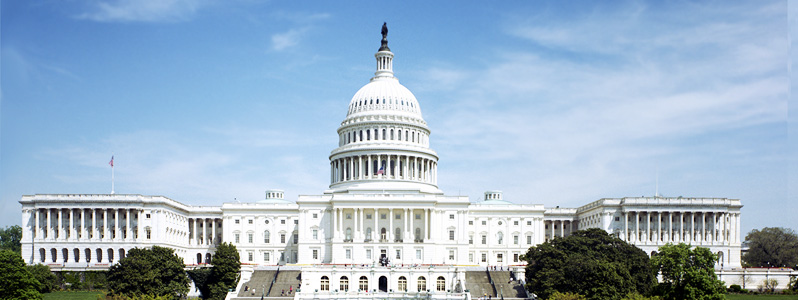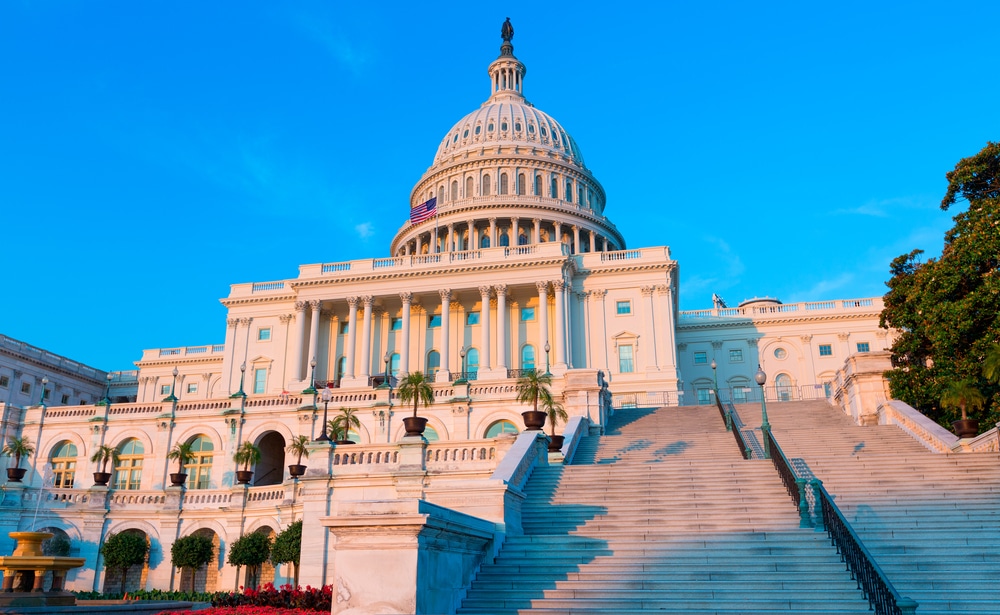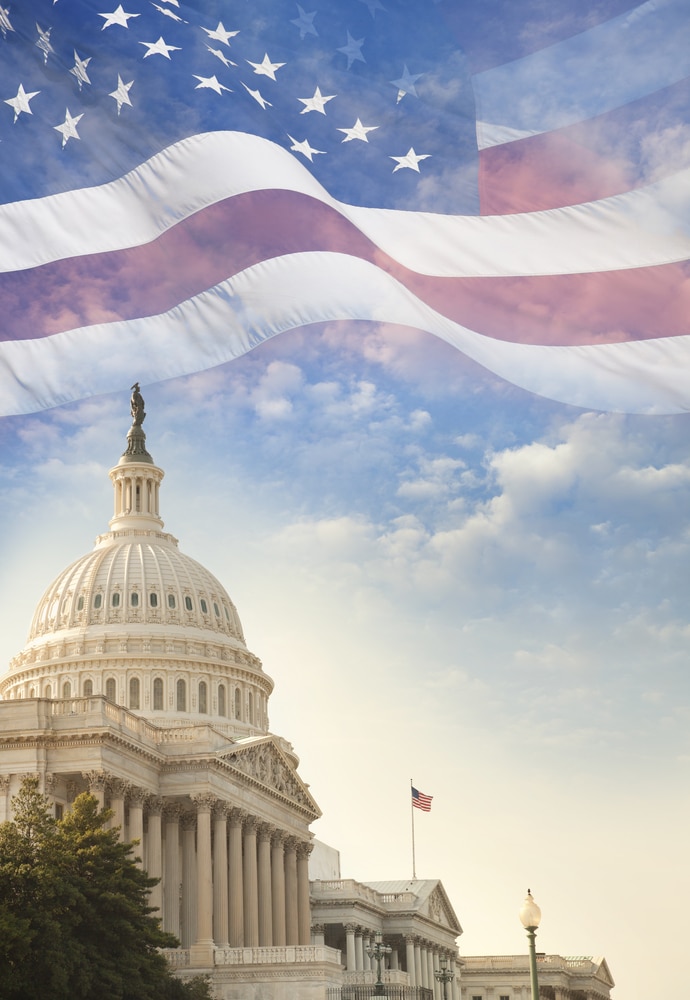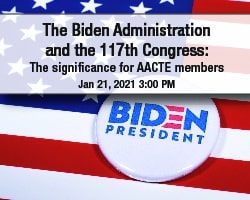16 Feb2021
By Jane E. West

Biden’s COVID Relief Proposal Moves Forward in the House
As per the requirements of the Budget Resolution that passed earlier this month, the shift was made this week to committees of jurisdiction. Eleven committees are involved in the House and each must draft an individual bill in compliance with the instructions in the Budget Resolution. Then the Committees submit those bills back to the Budget Committee, which creates the overall $1.9 trillion package to be considered by the full House. The same process is supposed to occur in the Senate—all with the deadline of March 14 when current COVID unemployment supplements expire.
Three Committees include important provisions related to education. The first—the Committee on Education and Labor—finalized their $170 billion proposal for education, over twice the annual budget for the Department of Education. The Committee approved the measure, 27-21, along party lines after considering more than 30 amendments, several of which were intended to require schools to reopen for in-person instruction. The $170 billion is comprised of $130 billion for K-12 schools and $40 billion for higher education. Led by Chair Bobby Scott (D-Va.), the Committee package also includes an increase of the minimum wage to $15 per hour, which Republicans oppose.
08 Feb2021
By Jane E. West
 This blog post is written by AACTE consultant Jane West and is intended to provide updated information. The views expressed in this post do not necessarily reflect the views of AACTE.
This blog post is written by AACTE consultant Jane West and is intended to provide updated information. The views expressed in this post do not necessarily reflect the views of AACTE.
House and Senate Press Forward with First Steps to Pass Biden COVID Relief Package
In dramatic moves in both the House and Senate last week, the stage was set to enact President Biden’s $1.9 trillion COVID relief package. Early in the week the House passed a Budget Resolution followed by Senate passage of a Budget Resolution early Friday morning—with a tie-breaking vote by Vice President Harris. The Budget resolution is the shell that will initiate the creation of legislation that will form the COVID-19 relief package. Because the Senate Resolution is different from the House resolution, the House will next take up the Senate version and pass it so that both bodies are working from the same playbook.
01 Feb2021
By Jane E. West
 This blog post is written by AACTE consultant Jane West and is intended to provide updated information. The views expressed in this post do not necessarily reflect the views of AACTE.
This blog post is written by AACTE consultant Jane West and is intended to provide updated information. The views expressed in this post do not necessarily reflect the views of AACTE.
Biden’s Executive Action and Political Appointments
This week, President Biden continued with his executive action blitz—signing a series of orders, actions, and memorandums aimed at rapidly addressing the coronavirus pandemic and dismantling many of the former administration’s policies. Among the orders signed to date are several of keen interest to educators, including the restoration of DACA, the repeal of the Trump order on race and stereotyping, an extension of the pause on student loan collection through September, and an order requiring the Department of Education to issue guidance on school re-openings during the pandemic.
Almost a week after being sworn in, President Biden is seeing his Cabinet start to come together. This week the Senate confirmed Antony Blinken, as Secretary of State, Janet Yellen,as Secretary of the Treasury, Lloyd Austin as Secretary of Defense, and Avril Haines as Director of National Intelligence—all with bipartisan votes. Biden awaits confirmation of numerous key Cabinet nominees to lead important agencies—including Justice, Homeland Security, Health and Human Services and the CIA.
25 Jan2021
By Michael Rose

With the new administration at work and a new congress well underway, the need for AACTE and its members to engage with their elected officials is as important as ever. The existing shortfall of highly trained educators has been exacerbated by COVID-19. According to one study, prior to the pandemic, 100,000 classrooms in the United States were staffed by instructors who were unqualified for their jobs; in one month alone, 469,000 public school district personnel nationally lost their jobs and roughly 27% of teachers say they are considering leaving their job, retiring early, or taking a leave of absence because of the pandemic. Congress must understand the consequences of the shortage and what needs to be done to address it.
Your voice is key to educating lawmakers.
The Committee on Government Relations and Advocacy, one of AACTE’s standing committees, is hosting a session during the AACTE Annual Meeting to educate attendees about President Biden’s priorities for education and the composition of Congress and legislation it may consider. The session will also focus on AACTE’s legislative priorities, as well as strategies to move them forward. The committee will also share how to use your voice and share your experience with your elected officials.
Do you have questions about this session? Email gra@aacte.org.
25 Jan2021
By Jane E. West
This blog post is written by AACTE consultant Jane West and is intended to provide updated information. The views expressed in this post do not necessarily reflect the views of AACTE.
Just two weeks after a riotous mob vandalized the Capitol, President Joe Biden and Vice President Kamala Harris took the oath of office on the steps of the very same building. Setting the tone of unity, President Biden urged us to “see each other not as adversaries but as neighbors” and to “join forces, stop the shouting, and lower the temperature.” With three living former presidents (Clinton, Bush, Obama) from both sides of the aisle joining together to send a message of support to incoming President Biden, a hopeful tone is set for moving forward.
With astounding speed, the new Administration got right to work. President Biden signed 17 executive orders, memoranda, and proclamations on the first afternoon of his Presidency. Among them were orders to rejoin the Paris climate accord, end the former Administration’s travel ban on predominantly Muslim and African countries; impose a national mandate requiring masks and physical distancing in all federal buildings, on all federal lands, and by all federal employees; and to pause Federal student loan payments through September.
On Thursday, the president took further executive actions that aligned with his pledge to reopen most K-12 schools in his first 100 days in office. These orders will help support the reopening goal by way of developing a national strategy to get the coronavirus under control. One executive order will direct the Departments of Education and Health and Human Services to provide reopening guidance to schools with a focus on masking, testing and cleaning. A separate presidential memorandum will offer reimbursement to schools for purchases of personal protective equipment through the Federal Emergency Management Agency’s disaster relief fund.
19 Jan2021
By Jane E. West

This blog post is written by AACTE consultant Jane West and is intended to provide updated information. The views expressed in this post do not necessarily reflect the views of AACTE.
Yesterday, President-Elect Biden revealed his massive $1.9 trillion COVID relief plan, hoping to jump start consideration in Congress. The goal of the education portion of the bill is to provide enough support for a robust vaccination plan, treatment, and funding to reopen a majority of K-8 schools safely within 100 days. The proposal provides $170 billion for K-12 and higher education. To date, the Congress has enacted almost $113 billion for the Department of Education in COVID relief funds.
Of the $170 billion in education funds, $130 billion would be for K-12 relief intended to cover technology needs; counseling, support for social, emotional, and academic needs of students; provision of smaller classes’ PPE, extra transportation; cleaning costs; and more. The Higher Education Emergency Relief Fund includes $35 billion for public colleges, public and private HBCUs and Minority Serving Institutions to provide online learning and emergency grants to students. A Governors’ fund is allocated $5 billion to support education for areas that have been the hardest hit by COVID, from pre-K through higher education. In addition, $350 billion is made available for state and local fiscal relief, a portion of which may be used for education. Funds are provided for regular testing for teachers and students, per recommendations from the Rockefeller Foundation.
15 Jan2021
By Michael Rose
 The events of January 6 shocked the nation. We witnessed a challenge to our democracy that none of us could ever have imagined.
The events of January 6 shocked the nation. We witnessed a challenge to our democracy that none of us could ever have imagined.
Just days before, senators and representatives were peacefully sworn in to the 117th Congress. On Wednesday, the joint session of the United States Congress was just beginning to count the electoral college votes for president and vice president when rioters stormed into the United States Capital, one of the nation’s most treasured buildings.
Fortunately, order was eventually established, and the joint session continued its work. This was the final step before Joseph Biden and Kamala Harris are sworn in as the U.S. president and vice president, respectively, on January 20. It also means that Democrats will control the House of Representatives, Senate and White House and give them significant leverage to implement their legislative priorities.
What does all this mean for AACTE, its members, and the students they work with?
12 Jan2021
By Katrina Norfleet
 AACTE is pleased to announce that Michael Rose has joined its staff as senior director of federal relations and policy as part of the Research, Policy and Advocacy team.
AACTE is pleased to announce that Michael Rose has joined its staff as senior director of federal relations and policy as part of the Research, Policy and Advocacy team.
Rose is an experienced government relations professional with over 20 years of experience. He started his career in Washington, DC, working for U.S. Senator Frank Lautenberg from his home state of New Jersey. After the senator’s retirement, Rose worked for more than six years in the House of Representatives for Congresswoman Maxine Waters. Most recently, Rose was the director of government affairs for the National Association for College Admission Counseling. In this role, he was the association’s main contact for Members of Congress, congressional staff, and various federal agencies regarding its college access and student protections agendas, among other issues.
12 Jan2021
By Jane E. West
This blog post is written by AACTE consultant Jane West and is intended to provide updated information. The views expressed in this post do not necessarily reflect the views of AACTE.
 The 117th Congress Begins
The 117th Congress Begins
Members of the 117th Congress were sworn in on January 3. Just three days later, they faced the unimaginable trauma of a breach of the Capitol by a mob of Trump supporters disrupting the certification of the electoral votes that would confirm Joe Biden as the next president of the United States. Despite the mayhem, chaos, and fear, after the Capitol was cleared, lawmakers went back to work and at 3 a.m. on January 7 confirmed the results of the election. Challenges to the electoral results by over 100 Republican Members of Congress were defeated, as both Republicans and Democrats—including Majority Leader Mitch McConnell (R-KY) and Sen. Mitt Romney (R-UT)—railed against the tactic.
Just days before the Capitol breach, Rep. Nancy Pelosi (D-CA) was voted in, once again, as the Speaker of the House—albeit by a narrow margin. The vote seals Pelosi in the record books as the first woman, and the first person in six decades, to regain the speaker’s gavel—now twice—after losing it.
07 Jan2021
By AACTE
The following statement was included in a Washington Post article on January 7.
AACTE President and CEO Lynn M. Gangone issued the following statement today regarding the horrific events that took place yesterday, January 6, 2021, at the U.S. Capitol building:
“Our nation experienced a serious threat to our treasured democracy as rioters stormed one of our nation’s sacred buildings, the U.S. Capitol, intending damage and insurrection. We witnessed a challenge to our democracy that none of us could ever have imagined. Generated by our nation’s President, some Members of Congress, and their denial of the results of our free and open electoral process, this unlawful invasion of the Capitol has left us all stunned. Never could we imagine such an event would occur in our nation’s capital, the seat of our democracy.
We are further outraged by the vast difference in how these rioters were treated by police as compared to how peaceful protesters for Black Lives Matter have been treated. The discrepancies are stark and maddening.
06 Jan2021
By Michael Rose
 Not many of us will shed a tear now that 2020 is behind us. The outbreak of COVID-19 resulted in a long and difficult year for students, families, schools, and colleges. Virtually, no part of our nation (or the world) was untouched. But with the start of 2021, we hope that the worst is behind us.
Not many of us will shed a tear now that 2020 is behind us. The outbreak of COVID-19 resulted in a long and difficult year for students, families, schools, and colleges. Virtually, no part of our nation (or the world) was untouched. But with the start of 2021, we hope that the worst is behind us.
The country will see a new congress sworn in on January 3 and, on January 20, Joseph R. Biden and Kamala Harris will be sworn in as the 46th president and vice-president of the United States of America.
Despite 2020 being in our rear-view mirror, the challenges we face due to COVID-19, the related economic collapse, and a politically divided country remain.
05 Jan2021
By Jacqueline E. King, Ph.D. and Jane E. West

Administrators and faculty of educator preparation programs (EPPs) have long been concerned about the challenge of attracting students to a profession where college affordability and financial compensation discourages them from pursuing teaching as a career. However, due to the pandemic, the concern is growing. Our nation’s educational system is at a critical crossroad where teacher shortages and budget cuts are colliding. On one hand we have teachers who are retiring early amid health concerns or being furloughed, and on the other hand, we have EPPs with shrinking programs and enrollment. This is the perfect storm many education leaders have feared, and the impact will be acute if we do not find ways to encourage diverse and talented students to enter a career in education.
To start, we need to address the financial challenges that future educators face, including a high student loan debt to earnings ratio and lack of awareness of scholarships and loan forgiveness at the federal, state, and university levels. Recently, the American Association of Colleges for Teacher Education (AACTE) released the Issue Brief, How Do Education Students Pay for College?, based upon data from the 2015-16 National Postsecondary Student Aid Study (NPSAS). According to the data, by the time education students graduate, 76% of them have taken student loans, and the average amount they borrow is nearly $28,000.
18 Dec2020
By AACTE
(December 18, 2020, Washington, D.C.) The American Association of Colleges for Teacher Education (AACTE) President and CEO Lynn M. Gangone issued the following statement today regarding the new Secretary of Education under the Biden-Harris administration:
“AACTE has happily submitted recommendations and participated in discussions with the Biden Transition Team regarding what is needed to rebuild and revolutionize education. We have highlighted the critical need for a COVID-19 relief bill, provided critical suggestions for the first 100-day executive actions, and contributed ideas for long term strategies and investments.
For the last four years, our nation has suffered from misguided and inadequate leadership at the U.S. Department of Education. This Administration’s failures have taken our nation’s PK-12 schools and system of higher education down a destructive path. While school districts struggle amidst a shortage of educators, with more than 600,000 jobs lost, so too do colleges of education with lowered program enrollment, program closures and faculty layoffs. The educator pipeline is at risk, and the future of our public education system is in jeopardy.
15 Dec2020
By Jane E. West
Welcome to Washington’s “end of the semester” sprint. Will that FY 2021 spending bill cross the finish line by the end of the year or be pushed into next year for the new Congress to grapple with? Will the President refuse to sign the bill and cause a government shutdown? Will there be another COVID relief bill any time soon? And how about the Biden Secretary of Education?
Congress Punts FY 2021 Funding Bill and COVID Relief Package until Next Week
They say there is nothing that focuses the mind like a deadline. In Washington, that means moving the deadline to the edge of the cliff before acting. This week, the House and Senate agreed to extend the December 11 deadline for funding the government to next Friday, December 18, giving them an additional week to negotiate and finalize the $1.4 trillion bill. President Trump is expected to sign the bill, called a continuing resolution, but he is a hard one to predict.
Consensus on a bi-partisan COVID relief bill seems to be growing on one day and shrinking the next. Many appear hopeful that another week could bring them to closure so that the COVID relief bill and the FY 2021 spending bill could be packaged together and delivered to the White House as an early Christmas present. There could also be a further extension of the deadline, even through Christmas. Speaker Pelosi (D-CA) has said she is not leaving town without a deal on both.
14 Dec2020
By Lynn M. Gangone
These are indeed difficult times for all levels of education, yet AACTE member institutions remain dedicated to high-quality, evidence-based preparation that assures educators are ready to teach all learners. AACTE continues to advocate for and support schools and colleges of education in their efforts to navigate the teacher shortage and COVID-19 related financial challenges, and their work to identify viable solutions to the multiple challenges that currently impact education.
The global pandemic has deepened the national teacher shortage crisis. College and university programs that prepare our teachers, principals, school counselors, and other essential education professionals are experiencing a debilitating wave of closures and faculty layoffs. The rising demand for high-quality education in the 21st century and achieving a prosperous quality of life for themselves and their families. It is critical now more than ever to recruit diverse, talented people into the education profession, which requires our nation’s leaders allocating funds to aid colleges and universities in their recovery from the significant financial challenges caused by the pandemic. It is also critical for legislators to revamp policies and practices to support a diverse education workforce.








 This blog post is written by AACTE consultant Jane West and is intended to provide updated information. The views expressed in this post do not necessarily reflect the views of AACTE.
This blog post is written by AACTE consultant Jane West and is intended to provide updated information. The views expressed in this post do not necessarily reflect the views of AACTE. This blog post is written by AACTE consultant Jane West and is intended to provide updated information. The views expressed in this post do not necessarily reflect the views of AACTE.
This blog post is written by AACTE consultant Jane West and is intended to provide updated information. The views expressed in this post do not necessarily reflect the views of AACTE. 

 The events of January 6 shocked the nation. We witnessed a challenge to our democracy that none of us could ever have imagined.
The events of January 6 shocked the nation. We witnessed a challenge to our democracy that none of us could ever have imagined.  AACTE is pleased to announce that Michael Rose has joined its staff as senior director of federal relations and policy as part of the Research, Policy and Advocacy team.
AACTE is pleased to announce that Michael Rose has joined its staff as senior director of federal relations and policy as part of the Research, Policy and Advocacy team. The 117th Congress Begins
The 117th Congress Begins